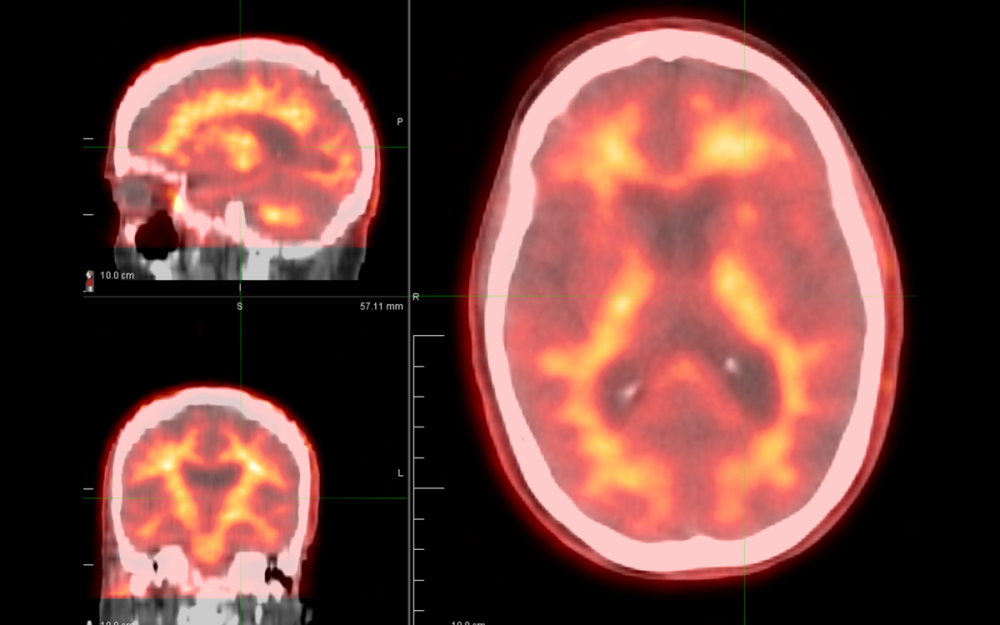Neurocognitive Disorders
In the Neurocognitive Disorders Center (NDC) of the McGovern Medical School at UTHealth, led by Dr. Paul E. Schulz, we are dedicated to evaluating and treating people with changes in thinking, behavior, and mood. Symptoms of these neurocognitive disorders can be caused by various neurologic or psychiatric disorders; as a result, they can be challenging to diagnose. Because treatments differ dramatically and misdiagnosis can lead to delays in treatment, early and accurate diagnosis is critical. As a result, we are very active in researching the causes and treatments for these disorders.
SYMPTOMS THAT WE COMMONLY SEE AND EVALUATE IN OUR CLINIC INCLUDE:
- Changes in thinking, such as memory loss, getting lost frequently, increased difficulty with activities of daily living (e.g., washing, dressing, grooming, toileting, and eating)
- Changes in mood due to neurologic illness, particularly for symptoms (e.g., depression, anxiety, mania) that first appeared later in adulthood
- Changes in behavior, such as hallucinations, delusions, aggression/agitation, judgment errors, lacking insight, lacking empathy
DISORDERS THAT WE COMMONLY DIAGNOSE INCLUDE:
- Alzheimer’s disease (AD)
- Mild cognitive impairment (MCI)
- Parkinson’s disease (PD)
- Frontotemporal dementia (FTD)
- Lewy Body’s disease (LBD)
- Progressive supranuclear palsy (PSP)
- Corticobasal degeneration (CBD)
- Wernicke-Korsakoff syndrome
- Normal pressure hydrocephalus (NPH)
- Prion diseases, such as Creutzfeldt-Jakob disease
- Vascular dementia
- Huntington’s disease (HD): Dr. Schulz and Dr. Hunter are part of the Huntington’s Disease Center of Excellence clinic here at UTHealth. For more information or to make an appointment at the UTHealth HD clinic, please visit: https://med.uth.edu/neurology/huntingtons-disease-program/
APPOINTMENTS
Our evaluation process usually requires two to three visits. Our initial visit will be used to establish the patient’s main concern and order the proper testing. We may use one of several diagnostic tools, such as Brain MRIs, blood work, neuropsychological testing, and PET scans. After receiving the results of the initial tests, we will see the patient to finalize our assessment and recommend a treatment plan. We ask that all of our patients are accompanied by a family member or anyone else who can help provide us with any additional information about the patient’s chief complaint.
Please keep in mind that we are typically a consulting service. Upon completion of the diagnostic process and formulation of a treatment, we will let your referring physician know of our recommendations, so they can continue your care. If you do not have a referring physician, we are delighted to help you find one with whom you are comfortable. If you are interested in and meet entrance criteria for a treatment trial, we will ask you to please participate while remaining under the day-to-day care of your referring physician.
Making An Appointment
Patients seeking an appointment or referring physicians, please call 832-325-7080.
Please bring the following items to your appointment, if available: any previous neuropsychological testing reports and any imaging (e.g., MRIs, PET scans) on a CD. Please do NOT send these items to our clinic prior to your appointment.
PRESCRIPTIONS
Upon formulation of the treatment plan, we will prescribe the appropriate medications with more than enough refills to last you until your next appointment with us or your referring physician. Please do not lose your prescriptions as it is very difficult for us to provide another copy. We typically do not prescribe refills without seeing you. Upon completion of your consultation with us, we ask that you please work with your referring physician to refill your prescriptions. We will communicate with the physician’s office directly to inform them of the medications.
RESEARCH
To provide our patients the best possible care, we are continually working individually and in collaboration with experts from around the world to improve the diagnoses, treatment, and prevention of cognitive disorders. This is only possible with the support of our patients, which can include something as simple as answering brief questionnaires or giving blood samples for analysis, or something more complex, such as a multi-year treatment trial. Our physicians and research coordinators are happy to fully address any questions or interests that you might have about participation in research.
For more information about our ongoing research, please visit our clinic’s Research page.
EDUCATION
One of our important roles as an academic institution is to train future clinicians. Therefore, learners (such as residents, medical students, fellows, junior faculty) may be present during clinical appointments.
ADDITIONAL RESOURCES
Some additional resources for patients, loved ones, and caregivers affected by neurocognitive disorders can be found at:
- The Alzheimer’s Association Houston and Southeast Texas branch
- The Houston-area Frontotemporal Dementia (FTD) Caregiver Support Group, which meets on the fourth Tuesday of each month. For more info, please contact Chris Ward (713) 253-5936 ([email protected]) or Asad Abbasi (281) 658-7411([email protected]).
- The Houston-area support group for patients and caregivers affected by progressive supranuclear palsy (PSP), corticobasal degeneration (CBD), multiple system atrophy (MSA), or Lewy body disease (LBD). The support group meets on the 3rd Saturday of each month (except July and December); for additional information, please contact the group’s facilitator, Karen Kennemer @ 281-358-2282 ([email protected]).
CLINIC CONTACT INFORMATION
Appointment phone: 832-325-7080
Direct: 713-486-0500
Fax: 713-383-1435
Mailing address: Dr. Paul Schulz or Dr. David Hunter (please indicate which doctor you are scheduled to see)
Neurocognitive Disorders Program
1941 East Road
Suite 4358
Houston, TX 77054
NOTA: Se habla Español
